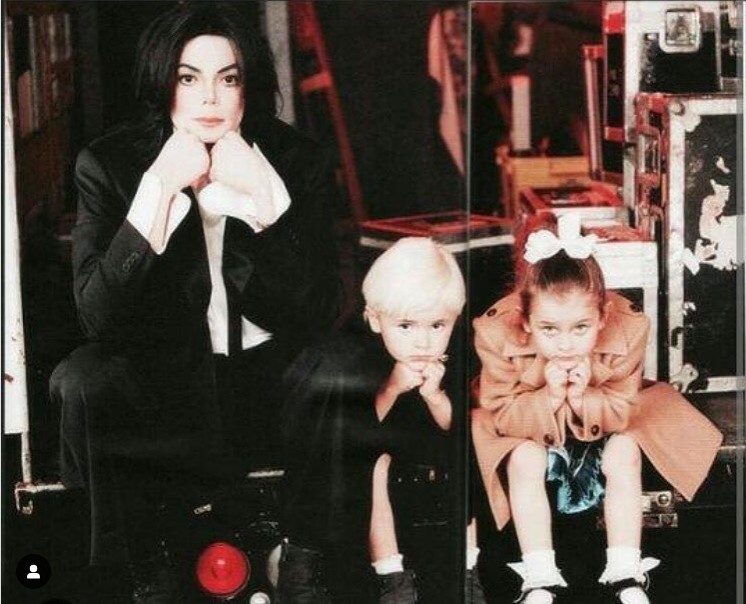Paris Jackson, the daughter of the late pop icon Michael Jackson, recently spoke about her African-American heritage and expressed a deep pride in her identity, as well as the challenges she has faced in doing so publicly.
Born in 1998 to the legendary “Billie Jean” singer and his then-wife, Debbie Rowe, Paris has often been at the center of public speculation and media scrutiny. Some have questioned whether Michael Jackson is her biological father, largely because her physical appearance does not strongly resemble his. Paris, with her fair skin, light-colored eyes, and now blonde hair, doesn’t seem to share many of her father’s distinct features. Despite these differences, Paris and her siblings—Prince and Bigi—share a strong bond and a close relationship with their late father, who raised them with great care and protection from the public eye.

Michael Jackson was famously protective of his children’s privacy. To shield them from media exposure, he went to extreme lengths, such as covering his youngest son Bigi’s face with a blanket whenever they were in public. While this approach was unconventional, it was Michael’s way of preserving their innocence amid his intense fame. However, it brought challenges, especially for Bigi, who was teased by peers and eventually adopted the nickname “Blanket” before deciding to go by Bigi as he got older. Following Michael’s tragic death in 2009, his children found themselves thrust into the media spotlight, where they became prime targets for paparazzi and the media, who eagerly documented their every move.
The intense public exposure took a toll on Paris, leading to struggles with post-traumatic stress disorder (PTSD). Paris has been open about her experiences in therapy, where she has worked to cope with a range of issues, including occasional audio hallucinations, particularly triggered by the sound of camera clicks, and a persistent sense of paranoia. At the young age of 15, she battled severe depression, leading to multiple suicide attempts. In 2019, Paris entered a treatment center after reaching a critical point. She has spoken about dealing with feelings of self-hatred and low self-esteem, where she often felt inadequate and questioned her worthiness.
Today, Paris has emerged stronger, carving out her own path as a successful musician. Following her father’s footsteps, she has embraced the music world, adding her own unique style. She is also a model, having walked for renowned brands like Chanel. Paris is part of a band called The Soundflowers, through which she explores a folk-indie sound. Reflecting on her journey in 2020, she said, “Music runs in my family. Being a Jackson, it’s only natural for me to pursue music. But for a Jackson to delve into folk indie—that’s a bit unexpected.”
Paris shares a close relationship with her brothers, particularly her older brother, Prince, who has been a steady source of support. In a 2020 interview with People, she described how much Prince means to her, saying, “He’s everything to me. I’ve always looked up to him and sought his approval. I wanted to be just like him.” Prince, in turn, has spoken about how Paris reminds him of their father. He sees Paris as a reflection of Michael, possessing many of his strengths and even some of his vulnerabilities. He admires her passion, which he believes mirrors their father’s intensity and dedication.

Michael Jackson himself underwent significant physical changes throughout his life. His skin, which was much darker in his youth, became noticeably lighter as he aged, leading to widespread speculation. However, in a 1993 interview with Oprah Winfrey, he addressed the change, attributing it to vitiligo, a condition that causes loss of skin pigmentation. “I am proud of my race. I am proud of who I am,” Michael stated firmly to Winfrey, dispelling rumors of intentional skin lightening.
In 2017, Paris gave an interview to Rolling Stone in which she opened up about her heritage and identity. She shared that she identifies as Black, explaining that her father had instilled a sense of pride in her about her background from a young age. Paris recounted a memory of Michael encouraging her to embrace her roots. “People who don’t know me might look at me and assume I’m white. With my light skin and now blonde hair, I could pass for someone from Finland,” she said. “But I trust what my dad told me. He never lied to me.”

Her statement about identifying as Black drew criticism, with media personalities like Wendy Williams expressing skepticism. Williams commented that while Paris may see herself as Black, her appearance might lead to different perceptions in the real world. Williams remarked, “Being Black isn’t just about what you identify as; it’s about how you’re seen in situations, especially by authorities. That’s what matters to the world.”
Despite the criticism, Paris remains resolute in embracing her heritage and staying true to her father’s teachings. Her story is one of resilience, growth, and a commitment to honoring her father’s legacy while forging her own path. As she navigates life in the public eye, Paris continues to advocate for mental health awareness and acceptance of identity, drawing from her experiences and the lessons she learned from Michael Jackson.





